Student Blog
International
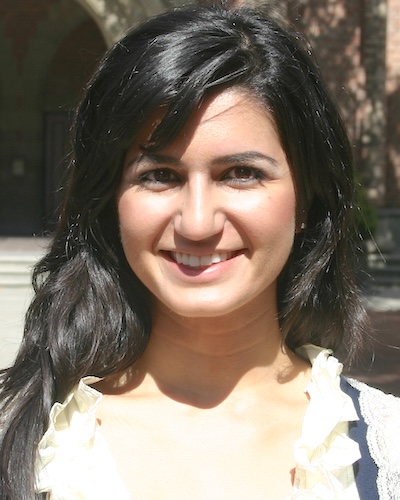
What makes USC’s program unique? ⟩
November 8, 2010, by Helen
Community Fieldwork Getting Involved International What are OS/OT?
The professors at USC support your learning in every way possible.
In the past couple weeks, I have held information sessions at UC San Diego, UC Davis, Sacramento State, and UC Berkeley. I am constantly being asked why I chose USC’s program and what makes USC’s program unique. From holding these information sessions and meeting so many ambitious and passionate future applicants I have had the opportunity to reflect more on the profession of Occupational Therapy. I have also had time to reflect on how attending USC’s program has influenced my professional future and outlook about the profession. The faculty at USC has such immense confidence in their students and provide the support for their students to not only be great clinicians, but to be leaders in their profession. This investment in the students is what has made my learning experience as a graduate student so unique.
In the last year, I have been provided with the opportunity to attend Lobby Day in Sacramento, advocating for Universal Health Care. Additionally, I was given the opportunity to do an international fieldwork in Ghana. I have also had the opportunity to attend OTAC conference in Pasadena, AOTA conference in Florida, as well as the student conclave in Kentucky. Attending these events, networking with current practitioners and leaders in the field, and learning what direction research is moving towards, have intertwined to inspire me about my profession. I am so proud to be an Occupational Therapy student at USC and am so grateful for being able to attend a university where the faculty truly supports your learning. The professors and faculty hold a holistic view of their students, emphasizing that it is not only valuable to be an excellent student doing well academically, but it is equally valuable to gain practice experience, leadership experience, research experience, and to be knowledgeable about the theory behind practice. By valuing all these learning components, I have a strong sense of the history of my profession, where we stand currently in our health care system, and what needs to be done in the future. The field of Occupational Science was founded at USC, Jane Ayres was a professor at USC researching Sensory Integration techniques, Lifestyle Redesign was established at USC, and our dean Florence Clark is the president of the AOTA. So to answer the question of why I chose USC and why I feel USC is ranked so highly for our OT program, I feel that it is because all these elements combine to create passionate practitioners who think broadly about the field of Occupational Therapy.
⋯

Ghana ⟩
October 11, 2010, by Helen
Fieldwork International What are OS/OT?
As a first year in the graduate program at USC, you have the opportunity to travel to Ghana and have a pediatric physical disabilities fieldwork experience. I had an amazing experience in Ghana and would love to return and work with the children there in the future. It was exactly this time last year that I was just deciding if I wanted to apply to travel to Ghana or not and I wanted to share some of my experience with those who are currently in the process of deciding whether or not they’d like to travel there this year. 😊 I learned more than I could have ever imagined from the children I met in Ghana and I highly recommend the trip to the first years in the graduate program.
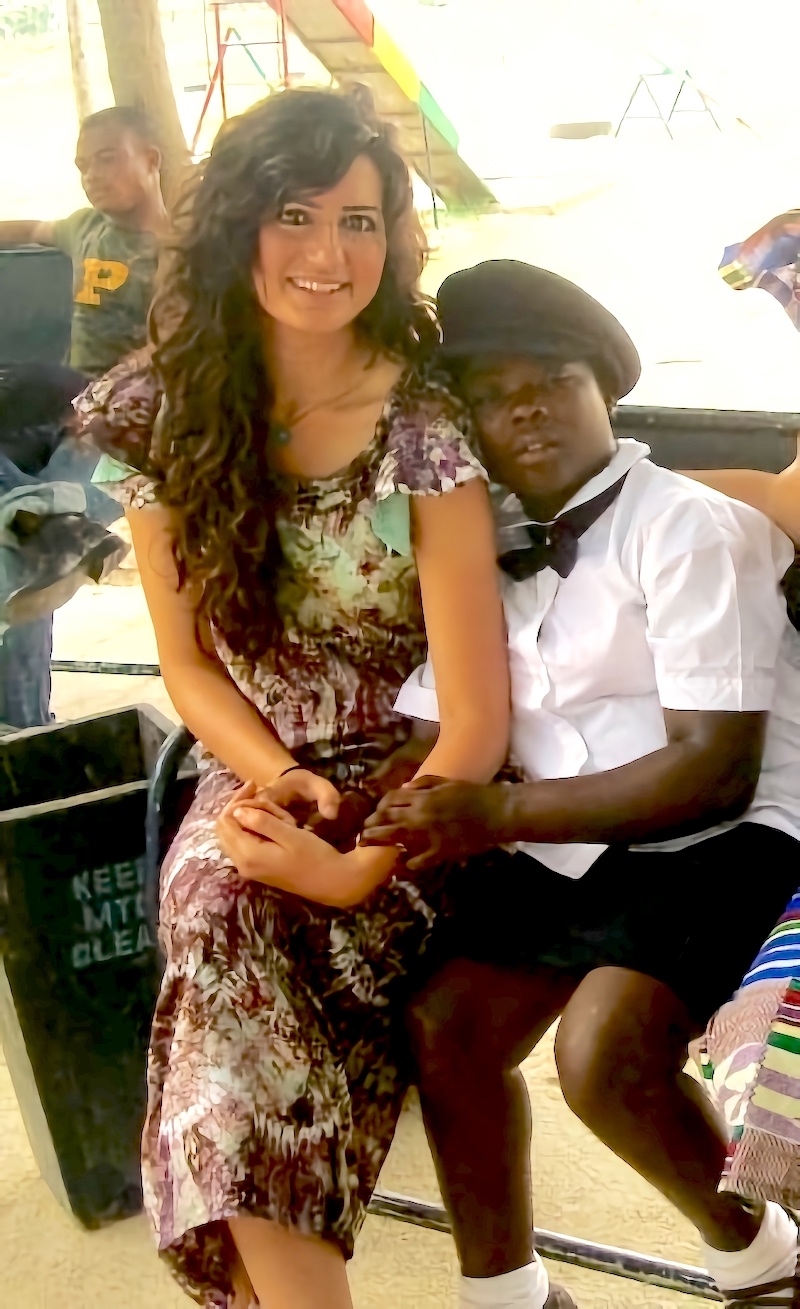
After a long trek from the airport, we stepped off our bus at Mephibosheth and the quiet was immediately broken by the laughter of children from behind their boarding hall window. This laughter was my source of energy for the entirety of my trip to Ghana. I had difficulty sleeping the first couple days I was in Ankamu and the Gomoa District because I was so excited to be engulfed by this entirely new place and people. I wanted to know every child’s history, how they had come to be at this facility, and I was so anxious to implement a treatment plan with students of my own. Little did I know, these children who I would be spending the following days with, would forever impact my value of time, family, resilience, interdependence, and the immeasurable value of healthcare access and occupational engagement.
Mephibosheth is the only facility in Ghana that addresses the needs of children with physical and mental disabilities. Pastor Joe and his wife Andrea have created this boarding school in the Gomoa District as a safe haven and source of occupational hope for children who are otherwise often unacknowledged by their society. As a boarding school with minimal in home aid from the school faculty, the children have adopted interdependency as their form of survival.
The practice of occupational therapy in the United States is defined by the American Occupational Therapy Association (AOTA) as being a science driven, evidence based profession that enables people of all ages to live life to its fullest by helping them promote health and prevent — or live better with — illness, injury, or disability (AOTA). Occupational therapists intervene to maximize quality of life at the early intervention, acute, or rehabilitation stages of development. As occupational therapists strive to promote independence and quality of life for clients experiencing an array of conditions, I was curious to see how therapy regarding independence in self-care would translate to the Ghanaian culture which so beautifully valued interdependence.
The day we sat quietly listening to Andrea, Pastor Joe’s wife, give us bullet points on each child’s medical and social histories, I mechanically wrote bullet points on the notes being dictated. My first notes read, “*Clara (name has been changed) — cage for six years, malnourished, Osteoporitic, estimated around 17-18 years old, has seizures, parents ashamed — guardianship given to German orphanage.” I couldn’t help but be in shock that I was just laughing for ten minutes outside with this same young lady about how she loves sunglasses and the ocean. I was quieted by the incredible confidence and happiness she exuded and humbled by how resilient this young woman who is actually 23 years of age is. My three pages of bullet form medical history notes about each child, have to this day not fully taken form in my mind.
I was baffled by the type of treatment plan I would create for our personal student *Kate, her bullets read “16-17 years, psych history, knocks doors to tell problems, taken to exorcism prayer camp, bit her breast/self mutilation, number one corn husker.” Knowing what resources were available to us, my partner and I attempted to brainstorm multiple activities we could do with her and made it our goal to give her as much positive attention as possible while trying our best to share our energy fairly between the two children we were assigned. Upon returning from Ghana, one of my most disheartening thoughts is that the entire two weeks I was there, I was unable to have a meaningful conversation with this young lady. I know that there was a language barrier in our attempts to talk to *Kate and that she was most likely not properly medicated and most definitely not in the most ideal place to address her needs, however I still felt a sense of responsibility to emotionally connect with this girl who would demand an apology from me every two minutes for looking at her, brushing against her, accidentally smiling a second too long at her, or not holding her hand when she wanted.
On the flight back from Ghana, I read our personal account readings about how practitioners should address mental health illnesses, emotional intelligence, and the value of having a trusted friend in the process of alleviating symptoms experienced by patients who have mental health disorders. As I read these personal account readings, I felt increasingly motivated to inspire change for people like *Kate who had suffered years of misunderstandings, physical and emotional trauma, and the trauma of social isolation. It seemed to me that everything these personal accounts told of what should not be done to address mental health needs was what *Kate had experienced and it breaks my heart to know that there is a very small likelihood that she will ever get the medical attention that the she truly deserves.
Pastor Joe preached on the value of being self-disciplined and having peer support. The value of leading a disciplined life was the topic of his three talks I attended at church. Leading a disciplined life means being able to practice self respect and through doing so and truly taking into consideration what is in one’s own best interest, is it possible to truly extend care and compassion for your neighbor. Pastor Joe preached that one must never forget that “there is always someone higher than you and someone lower. No one is above all.” This idea echoed in my mind as I observed the kids interacting with one another. Those who had increased range of motion helped the others get dressed, those who were able to read, helped pass out shirts with the proper labels, the kids who were doing better cognitively had the responsibility of passing out snacks. Everyone fed one another, wheeled one another, dressed one another, and shared every possession so openly. There is a set system of checks and balances among the kids at Mephibosheth. Each child has a role, character, and identity within their Mephibosheth family.
My last night at Mephibosheth, I had a conversation with one of the students that truly exemplifies the charisma of the children we worked with. I said to *Clara, “Your birthday is coming up! If you could do anything in the world for your birthday, what would that be?” and she replied with a smile “I would go to the beach and have a cola with my orphanage mother.” The children we worked with did not have the luxury of drinking soda and the beach was less than a mile away from their facility. The children travel to the beach once a year when the USC students visit, due to the need for adequate supervision/volunteers to travel with. The children I was so fortunate to have spent time with at Mephibosheth have forever influenced my thoughts, values, and ambition to decrease discrepancies in health care access.
⋯
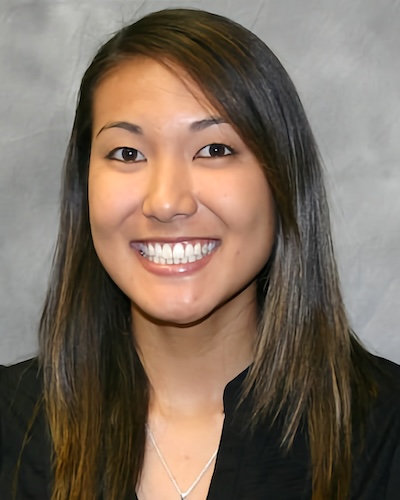
Looking Back — 1st Year ⟩
April 7, 2010, by Mari
Classes Fieldwork International School/Life Balance What are OS/OT?
Fall ’08 – Spring ’09
The transition from summer to fall semester was nice because we had a little more free time since we weren’t in class as often. The classes that we took were in Pediatrics, Physical Disabilities, Psychosocial Dysfunction, OT Skills, Gerontology, and Occupational Science. We also had labs for “Phys Dis” and Skills, and our Level I fieldwork (FW) during the fall and spring semesters. So, although we were spending less time in class, we were still quite busy. I chose not to work during my first year, which gave me more time to hang out with friends, help coach a club soccer team, and of course, study. 😉
Priscilla’s Surprise
Early on in the fall semester, we celebrated Priscilla getting married and threw her a surprise bridal shower! We try to find as many excuses as we can to hang out and have fun outside of school! I think she was definitely surprised!
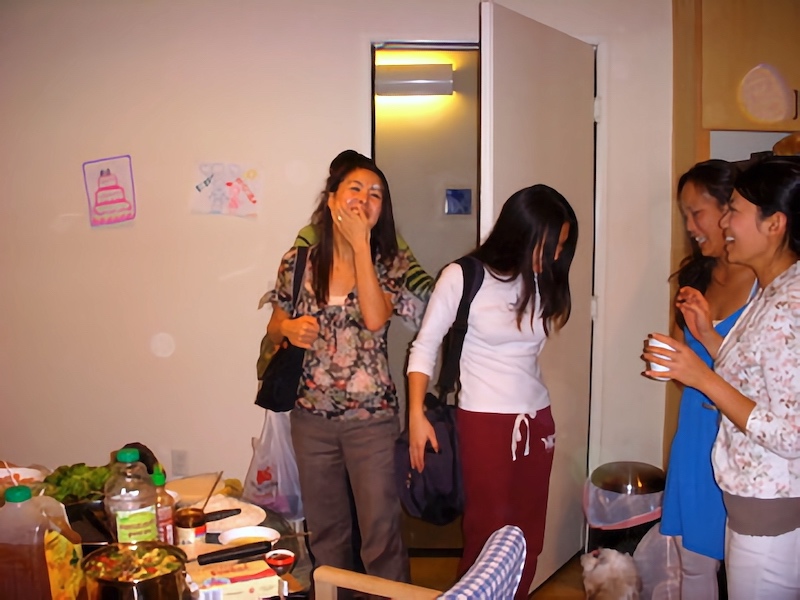
And here’s the whole group!
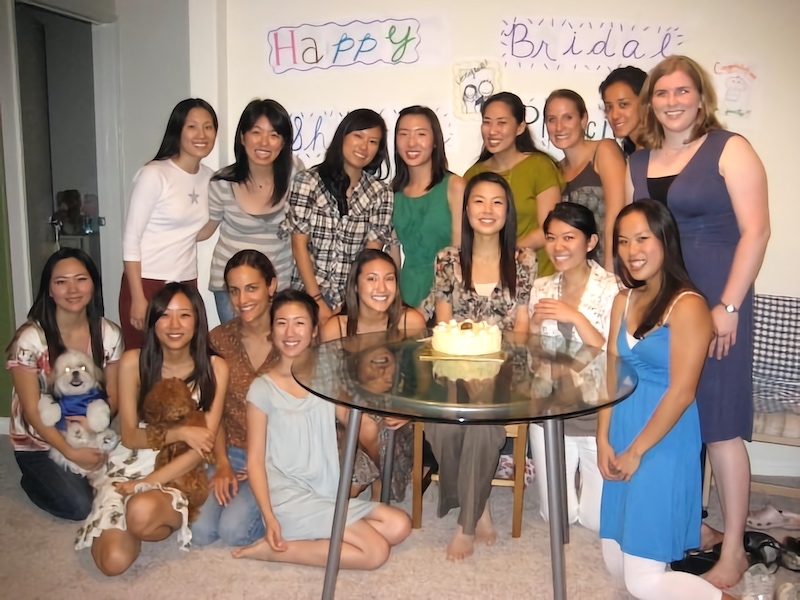
Casa Colina
Our first Level I FW was in the fall — I spent a full week at Casa Colina Centers for Rehabilitation in Pomona, CA, in the inpatient rehab unit. There are different departments at Casa — inpatient rehab, pediatrics, and transitional living. In the inpatient rehab department, the therapists were split into different teams, who generally treated a certain type of patient diagnosis. For example, there were teams for such diagnoses like spinal cord injury and brain injury/stroke, my team being the latter. My Clinical Instructor (CI) was Lisa and she was very knowledgeable and friendly! It was great to be able to work with her and see what it was like to be an OT in that setting. Casa had been pretty recently remodeled, so the facility was very impressive!
Here is a picture of the “Stroke” team on Halloween! It was a great way to end my fun week visiting Casa!
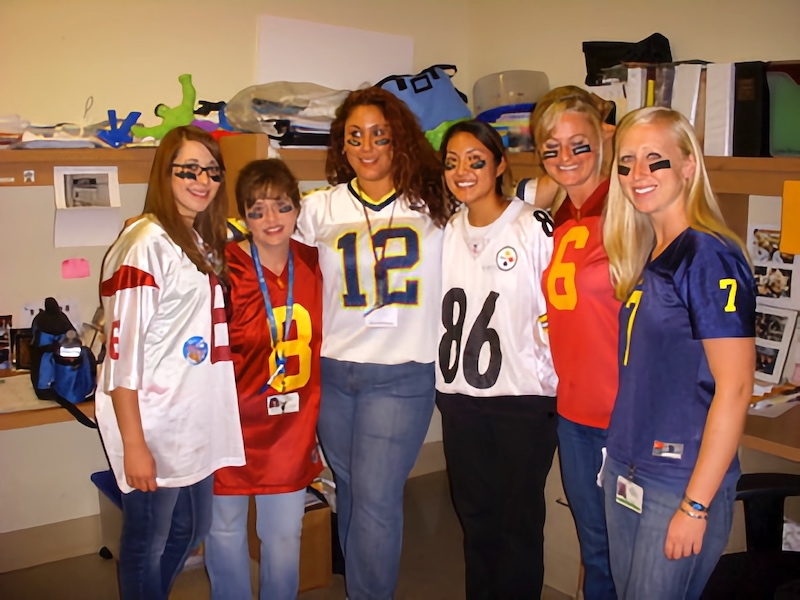
Ghana
My second Level I FW was in the spring — me, along with 32 other USC OT students, and 6 CIs spent two full weeks in Ghana! We worked with children with disabilities at the Mephibosheth Training Center (MTC), which is a boarding school for the children. This ministry was started by a Ghanaian pastor and his wife, who is a PT from the US. When we were there, there were 20 children, ages ~5-21 years old. In Ghana, they didn’t really know exactly how old the children were, and it made it tough to tell because many of them looked much younger than they really were. In Ghana, much, if not all of their livelihood is from physical labor or skills that a person has, therefore, people who have disabilities are looked down upon and seen as useless and hopeless. It is very sad, but infanticide is quite common if a child is born atypically, despite it being against the law. So, this is why MTC is such a wonderful place!
The children are taken in and they live at the boarding school for three months at a time. They will go home or to the orphanage they came from for one whole month, every three months. This is to encourage the children’s parents and the orphanage staff to be involved with their children’s health and well-being. At MTC, the children live amongst each other in a dormitory and they attend school and church together. Most of the children have chores and they are able to take care of themselves for the most part. It was so great to see how they truly act as one big family! What we were there for, was to help the children to increase their ability to do their everyday occupations. Two or three USC students were assigned one or two children. We assessed and observed them while they were in school, eating, and doing chores and self-care, in order to pinpoint what was going on with them and what they needed the most help with. We then developed a treatment plan, which we implemented during the week. And we created home and classroom programs (that were mostly pictures), which we taught to the children’s parents/orphanage staff and their teachers.
Going to Ghana was one of my most favorite experiences since I’ve been in OT school! Everything about it was amazing — the OT aspect: I learned so much in the short time that we were there and it really challenged my clinical reasoning skills and ability to think out of the box; the Christian aspect: being in a Christian environment was powerful as I saw some of my non-Christian USC friends being touched by the love that the Ghanaian children and people have for Jesus; the Ghanaian aspect: I absolutely loved Ghanaian culture — people were so laid back and friendly, it reminded me of home in Hawaii! We have so many stories and great memories from the trip, but here are a few pictures.
Meet Amanquah (~13 years old) — isn’t he so cute!? Sarah (another student ambassador) and I were partners on this trip and we had the opportunity to work with Aman! He didn’t have a specific diagnosis, but he had CP-like symptoms and malnutrition. He was very weak — he had to use a wheelchair to get around and would scamper on the ground on his elbows, hands, and knees to get around. He had a difficult time holding his head up, which inhibited him from efficiently participating in many of his occupations — eating, self-care, and doing schoolwork. He also didn’t speak much, but we could tell he was very bright!
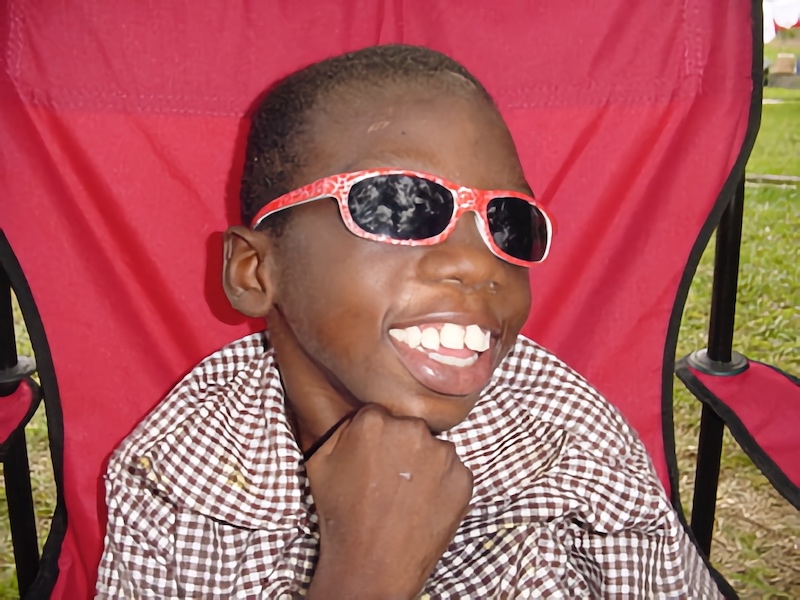
Barb was Sarah and my CI — it was her first time to Ghana as well. She was great! She brought a lot of good ideas and insight into our treatment and care for Aman!
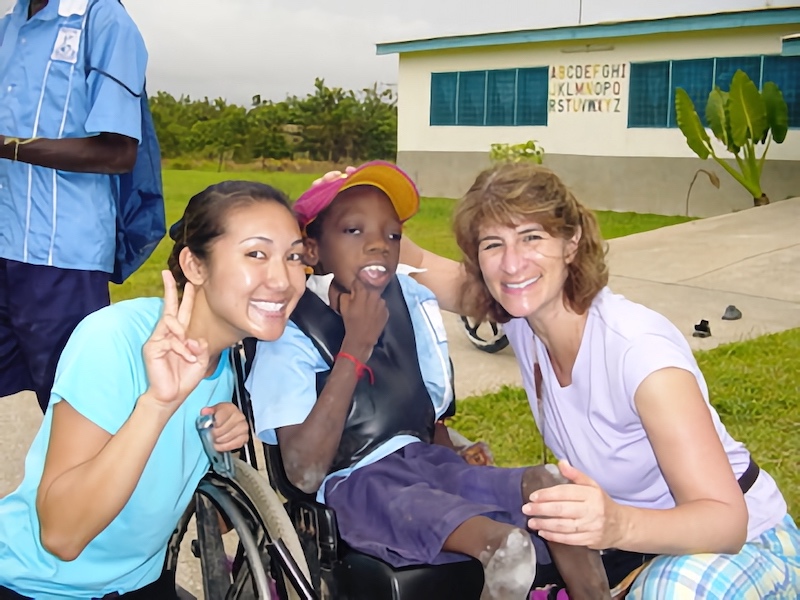
Here is Sarah and Aman taking a break between one of the exercises that we were doing to increase the strength of Aman’s neck extensors (to lift his head up).
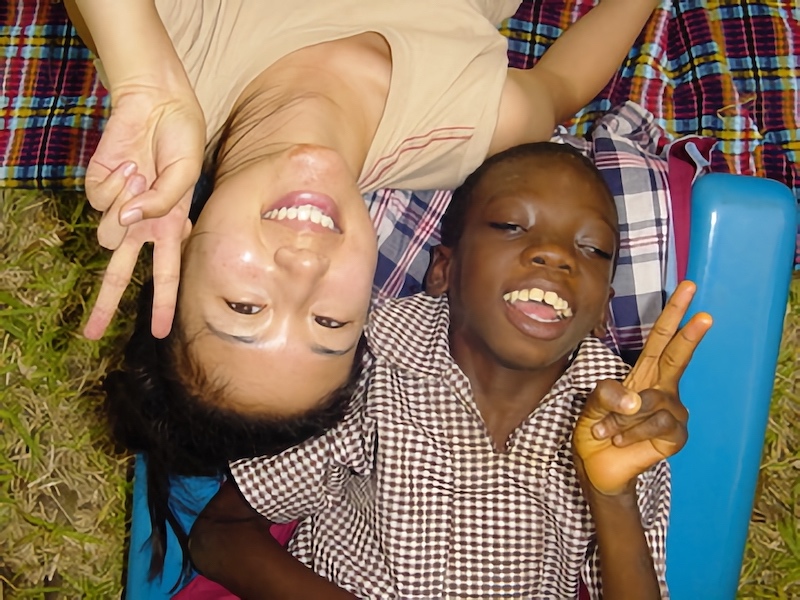
And here’s Aman and me doing one of his other favorite occupations — drawing and writing!
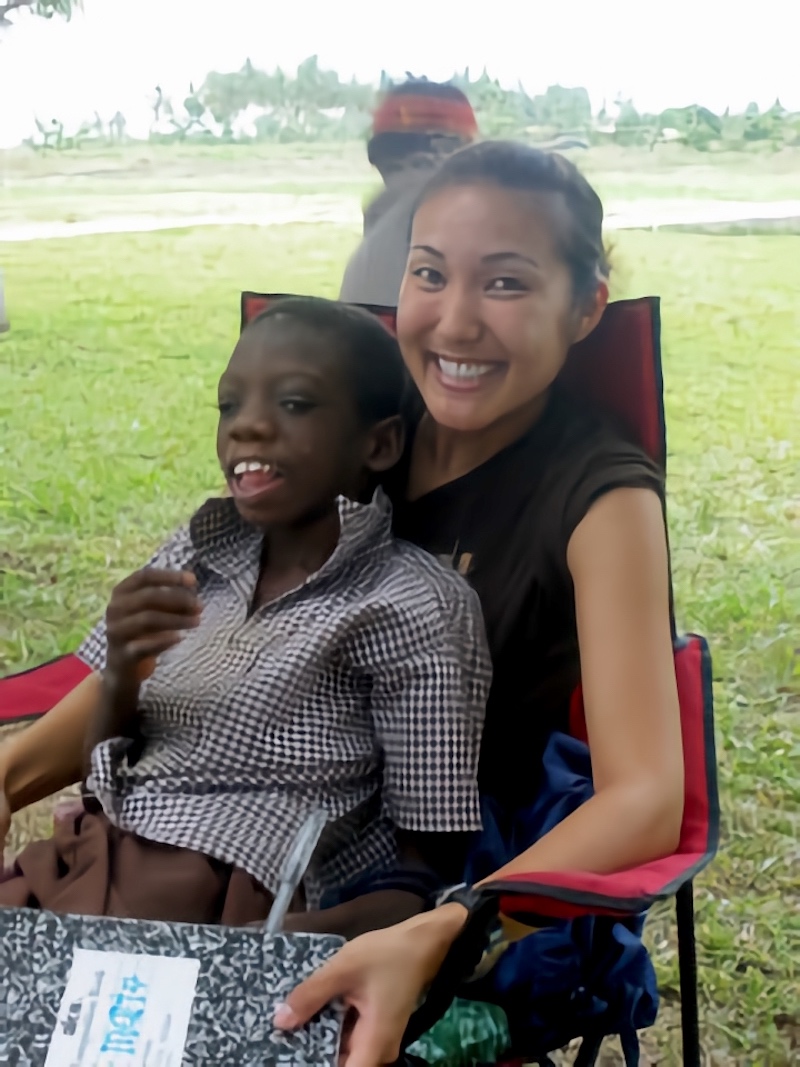
24th Birthday
Also, during the spring, my birthday, which happens to be Earth Day, came around, and of course, some of my friends and I used it as a reason to get together after class!
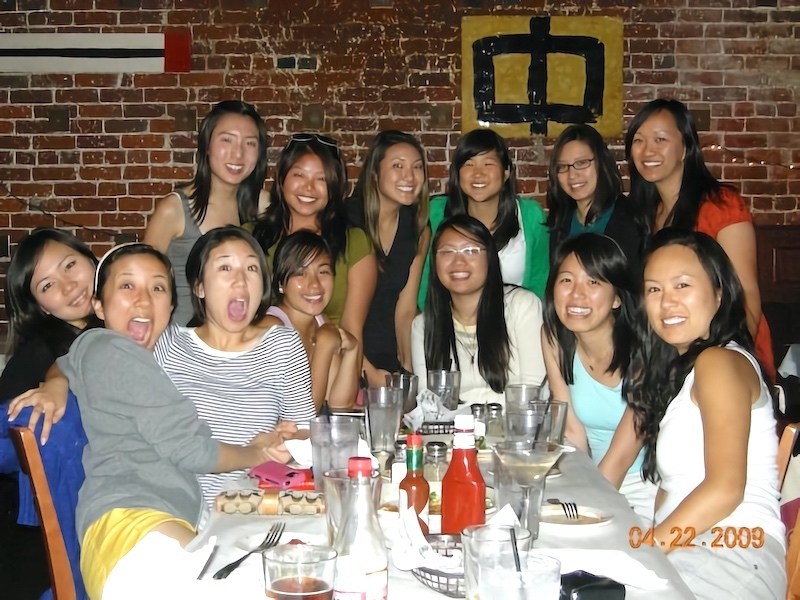
OT Banquet/Prom
And another great way to end the year — OT Banquet/Prom! A fun night of dressing up, good food, dancing, and great company!
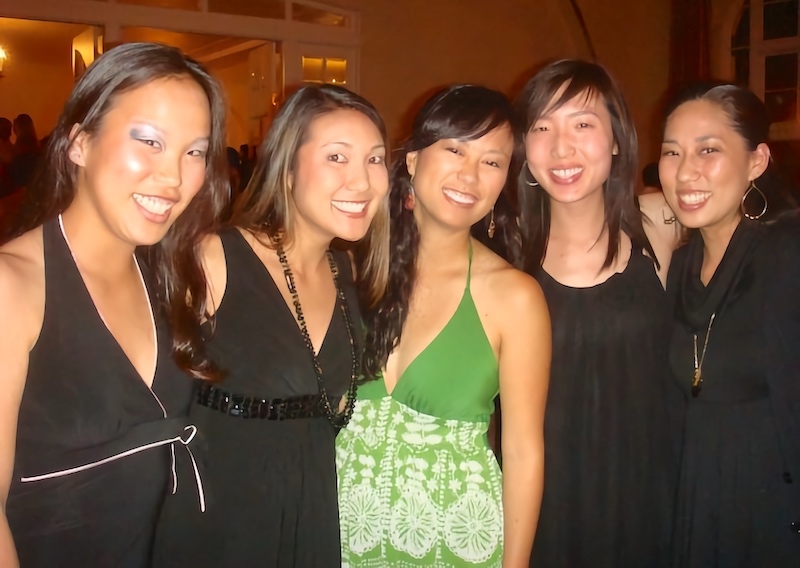
So that was a glance back at my first year. It definitely flew by quickly! To sum up the school portion of it — FW, labs, group projects, practicums, and site visits!
⋯





